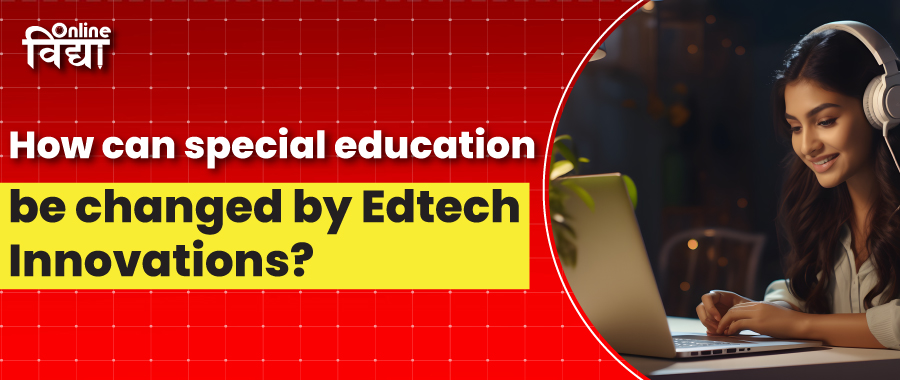Specializations
Courses Available
Courses

How can special education be changed by Edtech Innovations?
How can special education be changed by Edtech Innovations?,Jun 10, 2025
Information
Jun 10, 2025
903 Views
- Share:
While handling questions such as digital inequality and privacy problems, a well-balanced edtech in specialized education can improve learning outcomes.
Education technology equipment and platform implementation that provides dynamic solutions that correspond to the unique learning needs of students, and provides enormous changes in the special education society. This approach promotes learning experiences by ensuring that all students can learn at their own pace and address different requirements for students with special abilities.
Edtech benefits in special education
Adaptive teaching platforms: EDTech platforms for special education can adjust the material dynamically according to real-time performance, so that the student can advance at their speed and receive personal help with specific challenges. It is one of the benefits of edtech in special education.
Data-operated personalization: Teachers can increase and adjust the education through the use of practical data provided by continuous analysis of student data.
Through the use of data-driven methods, trainers can adjust their instructional methods to accommodate the learning style, development fields, and strengths of each student.
Learning experience with gamification: Inclusion of gamification in edtech makes learning more fun and engaging. Gamified functions increase participation, react to different teaching styles, and create an atmosphere of inspiring and positive learning.
Freedom and access: Edtech enables students to engage students with physical disabilities to engage more positively in course activities. For example, students with mobility limits can work with a computer and access their eyes using tracking techniques, and can move their eyes. In cases where teaching in practice is not possible, virtual classes and online schools can prove to be useful.
To consider problems and things
Despite these benefits, the increasing application of edtech in specialized education is not free from serious challenges and potential limits. Because each student does not have the same access to the required equipment and a reliable internet connection, digital inequality is a great concern.
In addition, one can depend on technology, which results in human interaction and a lack of mutual conditions. Valuable interactions between students and instructors should not be replaced by EDTech equipment, although they want to improve learning.
Protection and privacy of information also suppresses concerns. Children's learning styles, disabled people, and sensitive information about progress will be collected and stored in many of these systems. Because exposure and unauthorized exposure can give rise to abuse of personal data, this information must be preserved.
To be used effectively in special education for Edtech, assistant employees and teachers must be adequately trained. The potential benefits of these devices cannot be fully achieved without proper training.
A balanced strategy
A balanced approach that blends edtech with traditional learning methods ensures data protection and provides similar access to reduce the risk, although such advances have enormous opportunities to increase special education. Through this approach, we can create an open and accessory learning environment where all students can reach their full potential.

Meet Our Counselling Experts
Get 100% Free Career Counseling




PlacementPartners










Schedule Your 30 min Couselling Session With Today!!
Select a Date of your choice :
You Have Selected Slot on .

